Turning a Cow, Flowers and Laboring Hands into Assets in the Democratic Republic of Congo
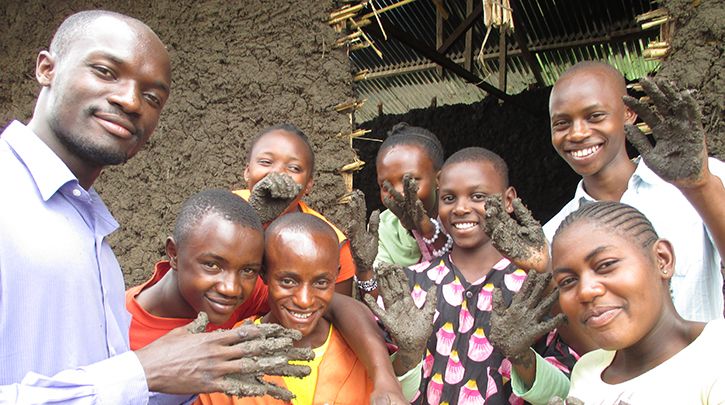
As part of its Ensemble Nous Pouvons (Together We Can) program, the Anglican Church of Congo (PEAC) is mobilizing members to create and develop initiatives that use existing resources to improve the physical, economic, social and spiritual lives of its communities. Since 2009, ENP has spread to all nine dioceses in the Democratic Republic of Congo (DRC), strengthening local Church networks and enlivening communities with its Asset-Based Community Development approach.
The Asset-Based Community Development philosophy promotes the recognition and use of local strengths to create improvements in the physical, social and economic fabric of the community. By identifying and valuing what it already has, a village can grow and develop as a group and as individuals.
The ENP program in the DRC uses this philosophy in all nine dioceses. It is growing rapidly, having started in PEAC parishes and then spread by word of mouth to residents in the surrounding neighborhoods. To date, over 600 projects have been initiated by more than 350 different ENP groups across the DRC.
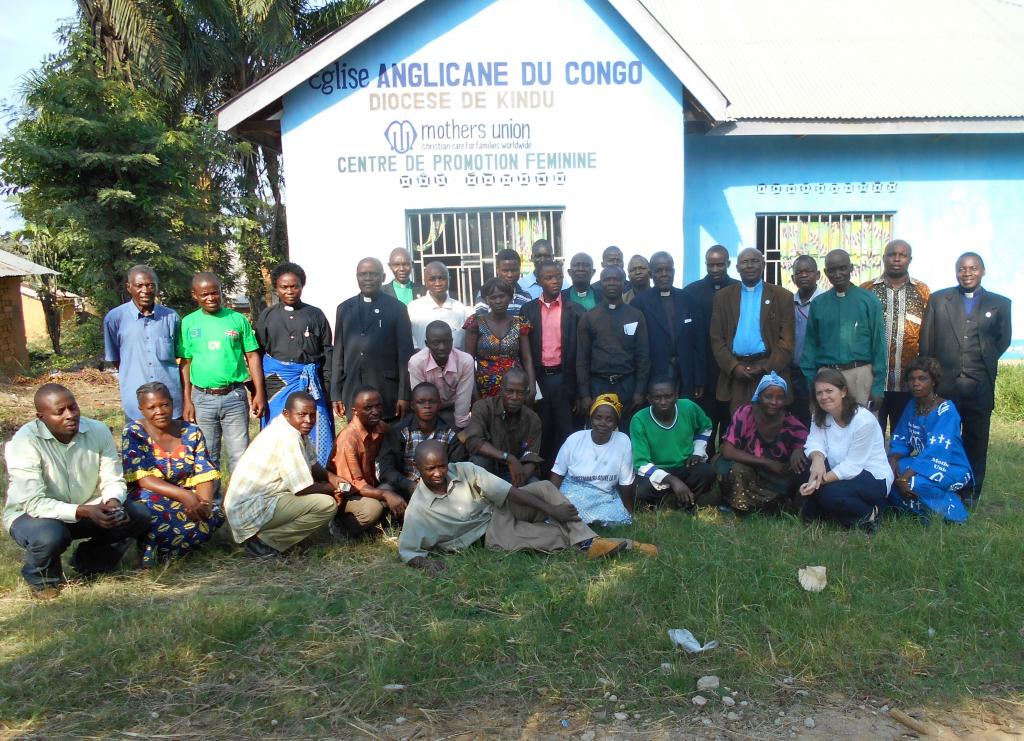
These projects are very hands-on and they make great examples of how the philosophy works. All projects are designed by group members and seek to make their village stronger by helping friends, families and neighbors in a variety of ways. Some projects develop income-earning opportunities for those who lost property and valuables to regional conflicts, and others generate new resources that can enhance the community’s spirit and economy.
There are many great stories of how Asset-Based Community Development is growing in the DRC. In St. André Cathedral in Butembo, North Kivu Diocese, all cathedral-goers are active in the core ENP group, which has also spun off smaller sub-groups with their own projects. For example, some women have developed a joint farming project raising animals, while on the other side of the road men are making and selling bricks. Members of the Cathedral have started projects with friends and family outside of the parish, too. Each week during services, a member will speak about one of the ENP projects happening under the parish’s umbrella, and the donations collected that week go to support that project.
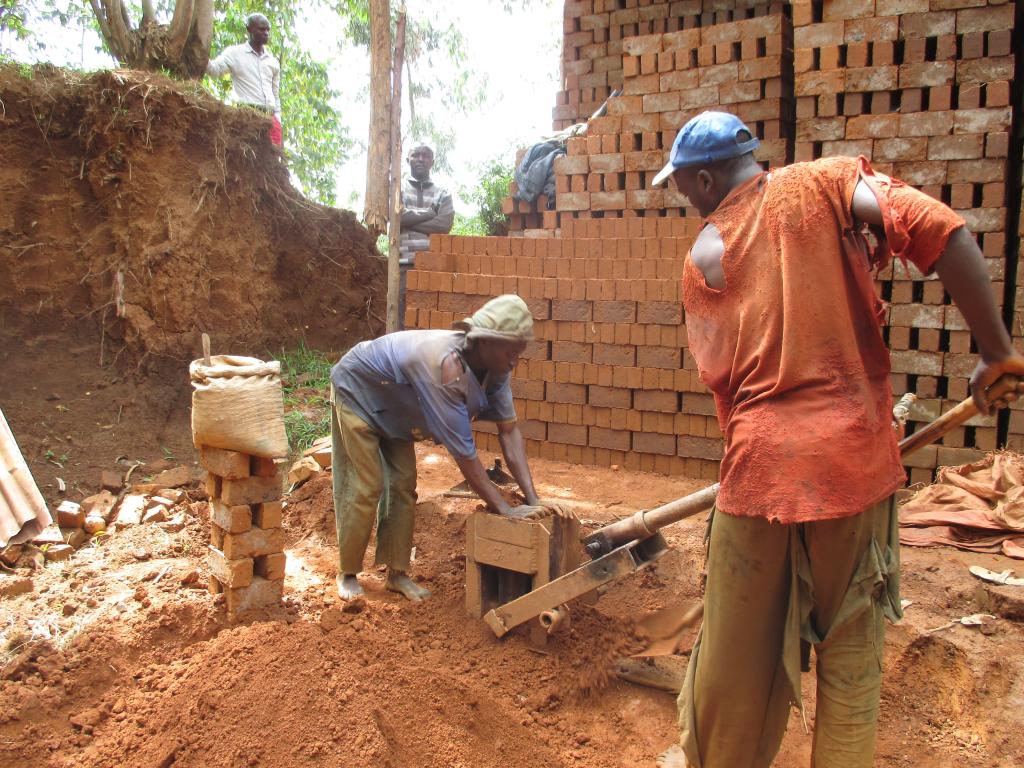
Since ENP groups started in 2010, Cathedral attendance has grown from 39 people to 220, and Sunday collections have grown from 2,000 CDF to 45,000 ($2 USD to $45). One ENP project involves the creation of a guesthouse – made possible by funds donated as well as labor provided by the group – and there are plans to develop a flower garden in front of the Cathedral for wedding groups and parties to rent. Not only will a flower garden boost the spirits of members attending the Cathedral, the income it generates can be used for additional economic improvement – perfectly matching the philosophy of Asset-Based Community Development.
Not all ENP projects are large like the one at St. André. Some are very small, in fact, but these are just as meaningful to the people involved. Take, for example, Kyabwohe Parish in Boga Diocese, which is an unstable area of the DRC due to rebel activity. In this parish, a cow, gifted as a small calf and raised for two years by members of the congregation, was sold to purchase a motorcycle. Fr. Kandole, the local priest, didn’t have enough money from the sale of the cow to also purchase a helmet, so he returned to his church with the hopes that his ENP group could sell a goat to buy the additional equipment to keep him safe on the bumpy rural roads.
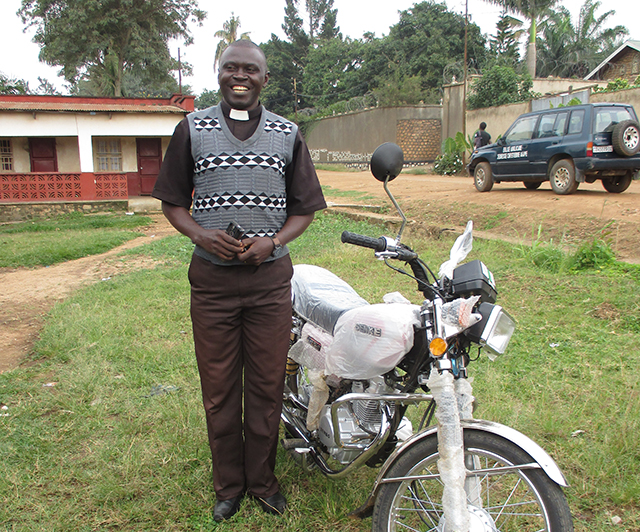
In Kyabwohe Parish, a group of town merchants learned about ENP and Asset-Based Community Development from members of the parish and then developed an ENP group of their own. They created a local savings and loan program to help members raise the capital needed for the purchase of inventory. As of September 2014, they had a combined savings of $13,000 USD – lending it to group members at 10 percent interest and to non-members at 20 percent to help grow the local business.
PEAC’s ENP programs also motivate the younger residents to work together at improving their communities. One spin-off group is located in the northeast DRC city of Bunia. A youth choir called Tujenge or Batirons (We Build) is building the walls of a school. Transporting water and dirt, they pack mud in layers on the stick frame both outside and inside the school. The money they are paid for this work goes into a group account. Some is used to purchase animals the choir members will raise and sell for a higher price. If they purchase goats, they can raise them quickly and then sell to purchase a calf. Once the calf is full-grown, they’ll sell the cow at a profit to purchase musical instruments, speakers and uniforms. Some of the money is also loaned to choir members who want to start their own ENP projects and fulfill their own dreams.
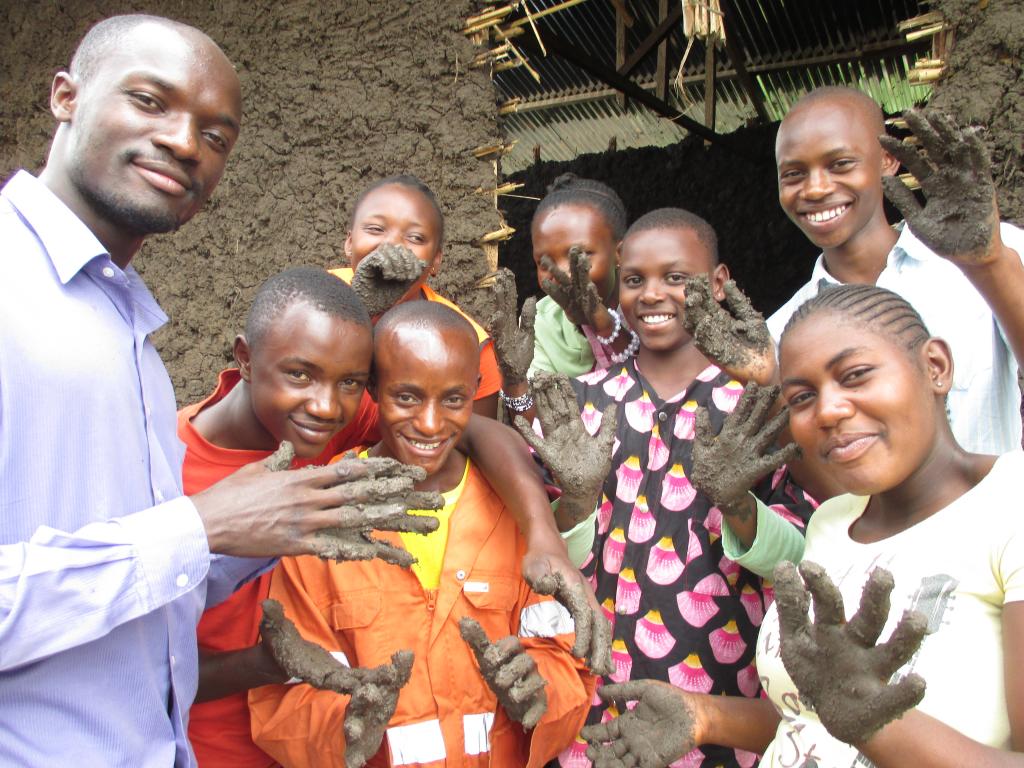
Each project under the ENP umbrella spreads benefits far beyond the group working on the project. This is why ENP programs – and their spin-offs – are growing so rapidly in the DRC. In a time and place where wealth is not wide-spread and insecurity is a given, these small steps taken by members to join together and make their parishes and communities stronger are what make PEAC’s ENP program so special.
“Through ENP I came to understand that poverty isn’t found in the pocket, but in the mind,” says The Rt. Rev. Muhindo Isesomo Adolphe, Bishop of the Anglican Diocese of North Kivu. “We used to have the habit of saying, ‘we are poor, we are poor.’ Now there are many families that are taking on projects in animal husbandry and in agriculture, and now they are paying for the school fees of their children themselves.”
Take a look at this video of the Vuyahira Women’s Group in DRC as they send blessings your way!
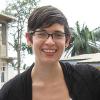
Faith Rowald is the Communications Officer at Episcopal Relief & Development.
Images: Top, A group at the Diocese of Kindo. Middle 1, Members of the community building bricks. Middle 2, Fr. Kandole and the motorcycle. Bottom, Tujenge youth choir showing off their muddy hands while building walls for a school.
Healing the world starts with your story!
During the 75th Anniversary Celebration, we are sharing 75 stories over 75 weeks – illustrating how lives are transformed through the shared abundance of our partners and friends like you! We invite you to join us in inspiring our vibrant community by sharing your own story!



